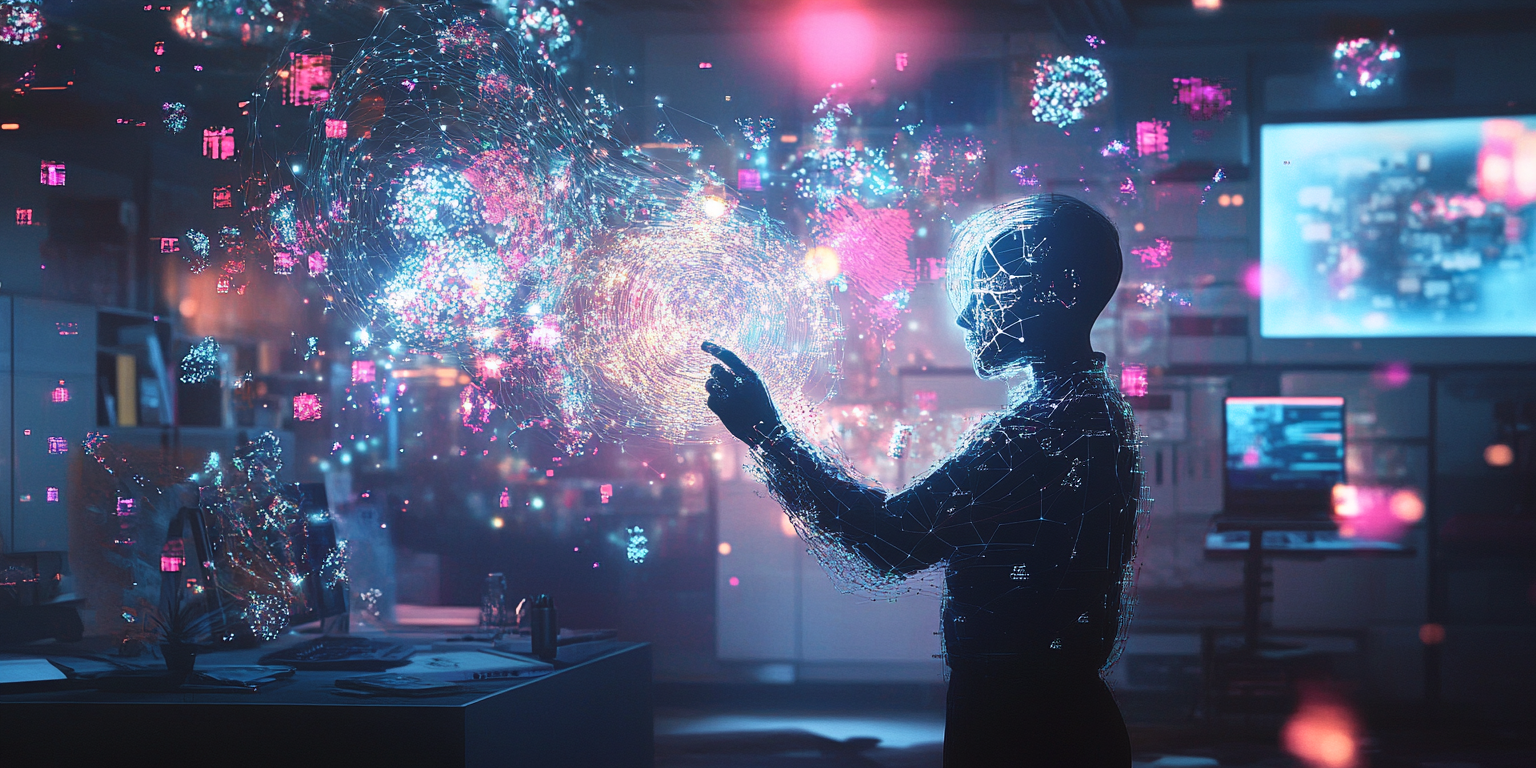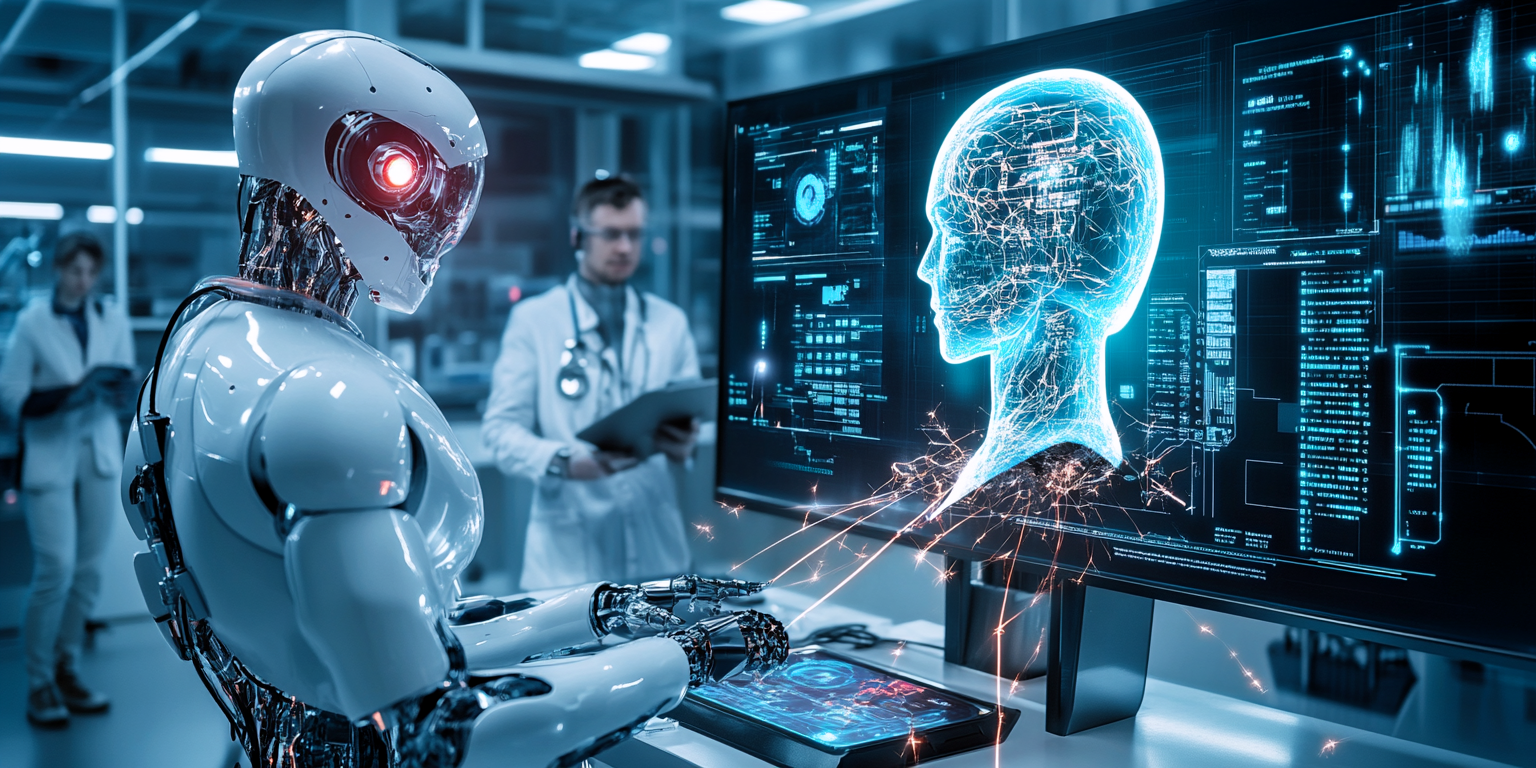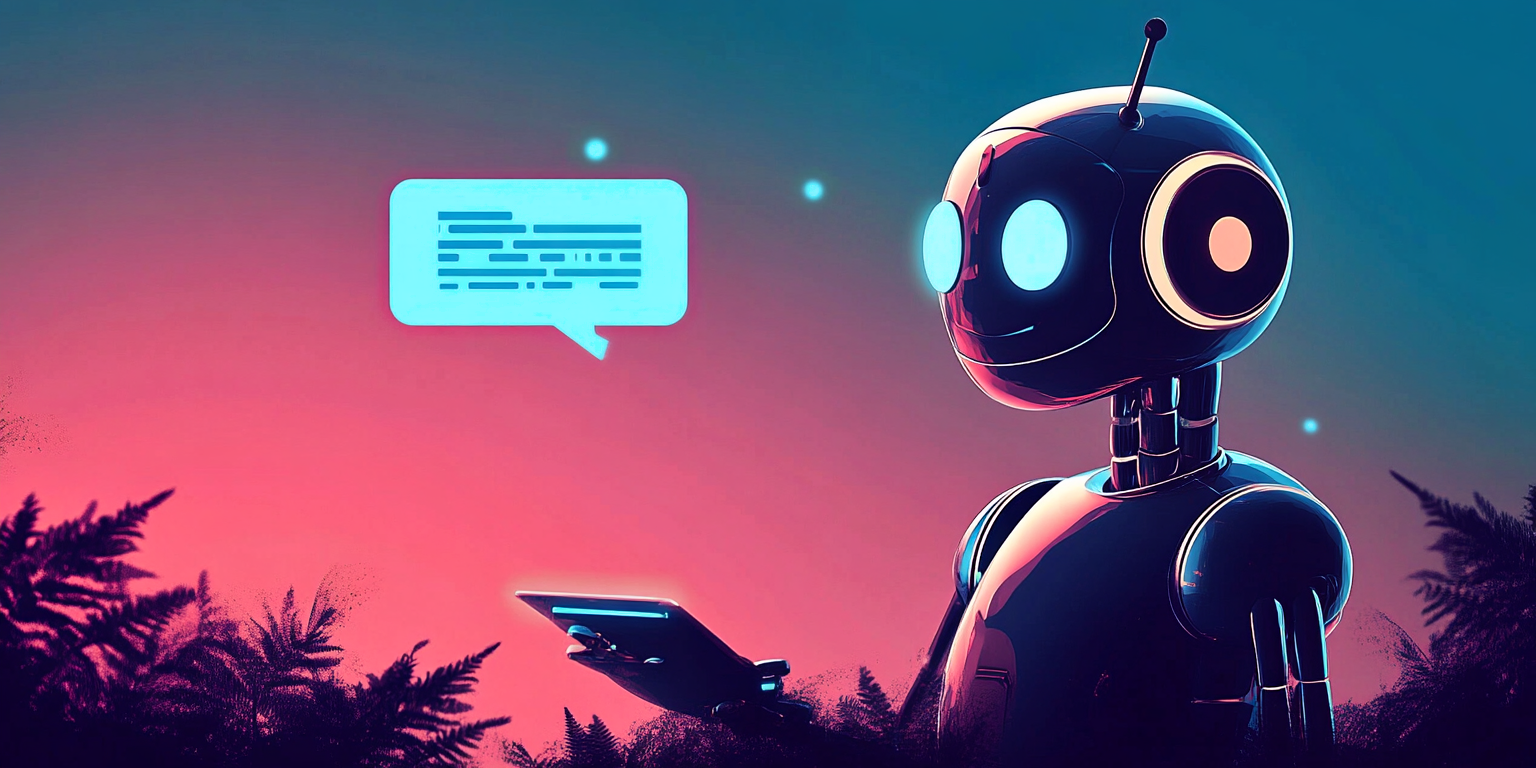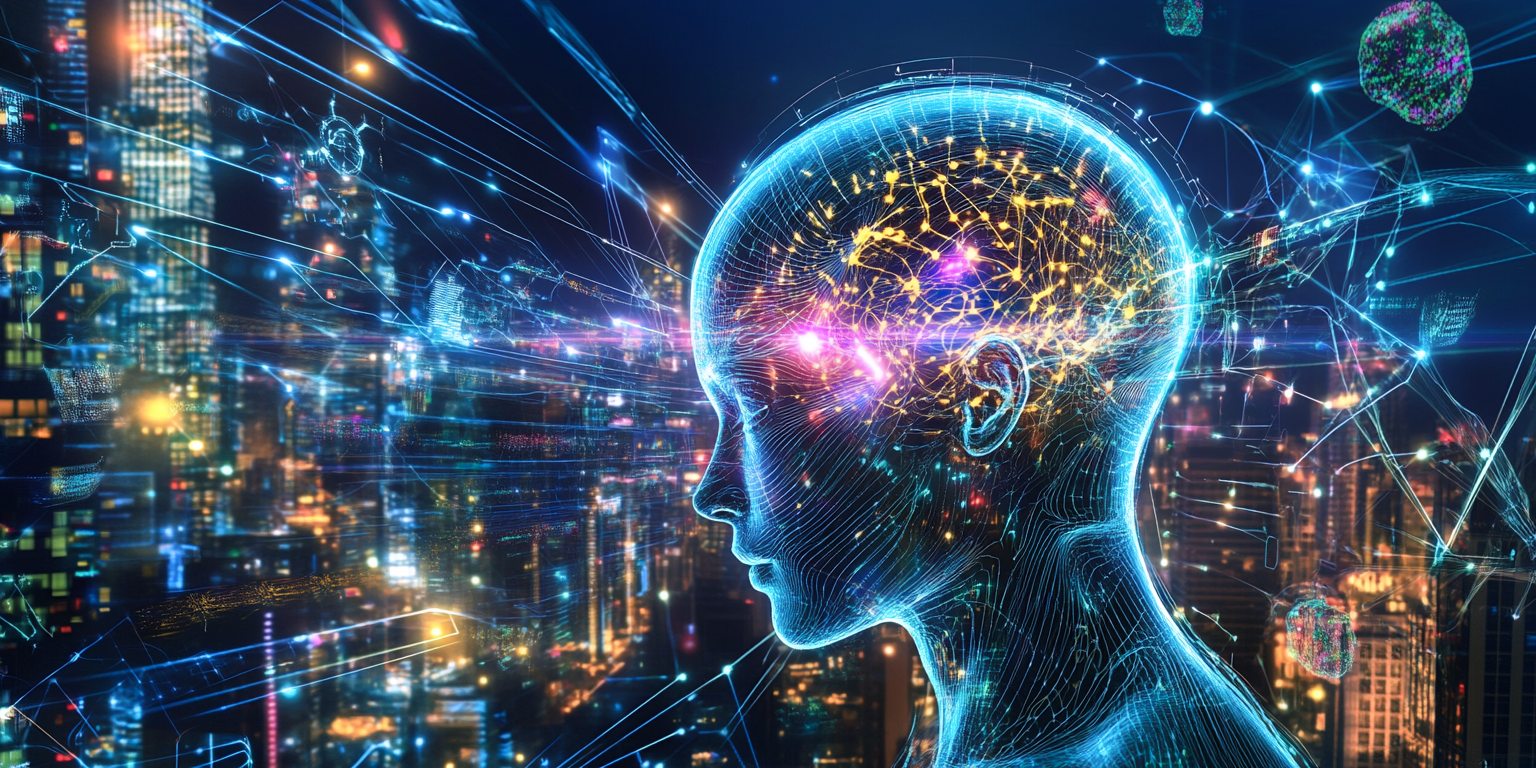

Are you constantly amazed by the wonders of AI? Have you ever dreamed of creating blockbuster movies or bestselling webtoons with AI as your creative partner? AI is revolutionizing industries, offering businesses up to a 40% boost in operational efficiency and transforming how we innovate, adapt, and thrive in a competitive world.
But while AI’s potential is extraordinary, many face challenges with generic tools that fall short of specific needs. Custom AI bridges these gaps, moving beyond one-size-fits-all solutions to deliver tailored systems that align perfectly with unique goals. Before exploring the power of custom AI, let’s first understand the common frustrations that highlight why customization is the key to unlocking AI’s full potential.
The Challenges of Generic AI: Recognizing the Frustrations

Have you ever tried using ChatGPT for work, only to be met with fabricated information or outright hallucinations that made the task more difficult? Perhaps you’ve turned to popular image-generation tools like Stable Diffusion or MidJourney, only to find that the results failed to align with your brand’s tone and manner. The frustration of receiving visually inconsistent outputs—like images with extra fingers or distorted limbs—can derail even the most creative projects.
For Sarah, a freelance graphic designer, the frustration reached a peak when AI-generated images for a client’s campaign turned out to be completely unusable. Distorted faces, extra limbs, and inconsistent lighting meant the visuals couldn’t meet commercial standards, delaying her project and damaging her professional credibility.
- Key Problem: Distorted, unrealistic AI-generated images that fail to meet professional standards.
- Impact: Delays in project timelines and potential loss of client trust.

Similarly, John, a supply chain manager in Seattle, faced challenges with AI-powered Excel automation for inventory tracking. The AI frequently miscalculated totals and overlooked key data points, making it impossible for him to trust the system with critical workflows. Each error risked significant operational disruptions, forcing him to manually review and correct outputs, negating any potential efficiency gains.
- Key Problem: Frequent inaccuracies in data processing, leading to unreliable results.
- Impact: Increased manual effort and heightened operational risks due to errors.
These experiences highlight the challenges of relying on generic AI solutions. While they aim to serve broad audiences, their lack of specificity often leads to results that fall short of expectations. For instance, delegating complex numerical tasks in Excel to an AI might feel risky, as errors or inaccuracies could compromise critical decisions. The inability to trust these tools entirely adds unnecessary stress to workflows, limiting their potential as reliable productivity enhancers.
These pain points reflect a common struggle: generic AI tools lack the precision, adaptability, and contextual understanding required to handle specialized or brand-specific tasks. As businesses increasingly rely on AI, these limitations become more apparent, revealing a pressing need for solutions that not only address these shortcomings but also align perfectly with unique organizational objectives.
The Causes of Issues with Major AI Systems

These challenges don’t arise in isolation—they are rooted in how generic AI systems are built and deployed. To understand why these limitations exist, let’s delve into the underlying design and training issues of major AI tools. Understanding these root causes can clarify why custom AI offers a better solution. The root of many frustrations with current major AI systems lies in their design philosophy. Tools like ChatGPT, Stable Diffusion, and MidJourney are built as general-purpose solutions, aiming to serve a broad range of users across various industries. While this broad applicability can be beneficial, it comes at the cost of precision, reliability, and context-awareness.
One key issue is the tendency of models like ChatGPT to generate false information. These systems prioritize fluency and creativity over factual accuracy, leading to outputs that can be misleading or incorrect. For image-generation tools, the problem lies in their lack of alignment with specific brand guidelines or aesthetics. This often results in visuals that fail to match the desired tone, and in some cases, produce distorted or unrealistic elements, such as extra fingers or limbs.
Another limitation is their inability to adapt to specific organizational needs. Whether it’s managing complex numerical data in Excel or creating brand-consistent imagery, these tools often fall short due to their generic training. Additionally, the “black-box” nature of these models makes it difficult to trust their processes, leaving users unsure of how decisions are made or how errors can be corrected. These challenges underscore the need for more tailored AI solutions.
What is Custom AI?

These limitations highlight the need for a more tailored approach to AI. Enter custom AI—a solution designed specifically to overcome these challenges by aligning with unique business goals and requirements. Custom AI refers to artificial intelligence systems specifically designed and developed to meet the unique needs of a business. Unlike off-the-shelf AI tools that offer generic solutions for common problems, custom AI focuses on flexibility and adaptability, aligning precisely with a company’s goals, processes, and challenges.
The key advantage of custom AI lies in its ability to address specific requirements. For example, a niche e-commerce platform might benefit from a personalized recommendation engine that caters to its specialized product range and customer base. Similarly, a manufacturing company could leverage predictive maintenance systems tailored to its unique machinery and operational setup.
Off-the-shelf solutions, while convenient, often lack the depth and precision required for addressing specialized use cases. In contrast, custom AI provides a robust framework that evolves alongside the business, ensuring scalability and long-term value.
This bespoke approach not only optimizes current operations but also empowers businesses to innovate and stay competitive in their respective industries. As technology advances, the demand for AI solutions that align with individual business strategies is growing, making custom AI a critical asset for companies aiming to lead in the digital age. Custom AI also allows businesses to integrate unique features, making the AI system an essential part of their operational ecosystem. Unlike one-size-fits-all models, these solutions address highly specific needs, driving efficiency and enhancing customer satisfaction.
Real-World Examples of Custom AI Solutions
Custom AI bridges the gap between generic tools and specialized needs, offering scalable and precise solutions. To understand its true impact, let’s explore real-world examples where tailored AI has driven tangible results. Unlike generic AI tools, custom AI is designed to align seamlessly with specific operational needs, enabling companies to address unique pain points with precision and scalability. In the following real-world scenarios, you’ll see how custom AI has been implemented across diverse industries—ranging from e-commerce to manufacturing—to revolutionize processes, enhance customer experiences, and achieve remarkable productivity gains. These case studies illustrate the tangible impact of tailoring AI to fit organizational objectives, providing a glimpse into the possibilities that custom solutions unlock.
Example A: GPT + Custom AI for Sales and Customer Service Bots

A growing organic skincare company based on Denver, Colorado, found itself overwhelmed by the increasing volume of customer interactions. As their business expanded, sales inquiries flooded their inboxes, while customer service teams struggled to keep up with repetitive questions and minor complaints. This bottleneck was not only delaying responses but also negatively impacting customer satisfaction and sales conversion rates.
Challenge: The company needed a solution to manage their growing communication demands efficiently without compromising the quality of customer interactions. Solution: A custom AI layer built on GPT was implemented to address these challenges: - Sales Email Bot: Automated personalized responses for 80% of incoming sales leads, reducing response time by 60%. - Customer Service Bot: Handled FAQs and routine issues, freeing up human agents for complex tasks and increasing resolution rates by 25%.

Result: Within three months, the company saved over 1,000 hours per month by automating the bulk of their communication tasks. This efficiency not only allowed the human team to focus on high-value customer interactions but also boosted customer satisfaction scores by 35%. Additionally, the quicker response times led to a noticeable increase in sales conversions, further enhancing the company’s bottom line.

By integrating a custom AI solution, the company transformed a significant operational bottleneck into a streamlined process, setting the stage for scalable and sustainable growth. This success story demonstrates the tangible impact of tailoring AI to address specific business needs.
Example B: Image AI + Custom AI for Brand Identity
An Australian fashion retailer, distributing products worldwide, faced a major challenge during the launch of their seasonal collection. With campaigns spanning multiple regions, the marketing team needed visuals that not only reflected the brand’s identity but also resonated with diverse cultural audiences. Relying on traditional graphic design processes was proving costly and time-consuming, delaying campaigns and creating inconsistencies in brand presentation.
Challenge: Maintaining consistency in visuals for a global marketing campaign while producing tailored content for diverse markets. Solution: The company turned to a custom AI solution trained on their brand guidelines. This system delivered: - Brand-Consistent Visuals: Over 500 images were generated, all reflecting the brand’s tone, style, and signature color palette, ensuring a cohesive look across all platforms. - Localized Campaigns: The AI adapted visuals to specific regional markets, incorporating cultural elements and preferences while preserving the brand’s core identity.

Result: Content production time dropped by 70%, allowing the company to meet campaign deadlines without sacrificing quality. Engagement rates increased by 40%, as culturally relevant visuals connected more effectively with target audiences. Additionally, the cost savings from reduced reliance on manual design processes enabled the team to allocate resources to other strategic areas.
By integrating custom AI for image generation, the retailer not only streamlined their creative process but also strengthened their brand’s global presence. This success highlights how tailored AI solutions can meet the dual demands of consistency and personalization, ensuring impactful marketing campaigns worldwide.
Example C: AI for Manufacturing, Logistics, and Distribution
An Indonesia-based shoe subcontractor leading manufacturing and distribution, was facing growing pressure to increase productivity while maintaining the precision required in high-stakes operations. Delays in production lines, inefficiencies in logistics, and inventory discrepancies were not only affecting profitability but also customer satisfaction. Traditional methods of scaling were proving insufficient, requiring the company to explore advanced technological solutions.
Challenge: Improving productivity while maintaining exceptionally low error rates in high-stakes operations. Solution: The company implemented a custom AI system designed to optimize key processes: - Manufacturing: AI-driven real-time error detection increased production efficiency by 80%, minimizing downtime and defective outputs with daily variations of ±5%. Defective product rates were reduced to below 0.02%. - Logistics: Predictive route optimization cut delivery times by 48%-52%, accounting for regional infrastructure and traffic patterns. Seasonal delivery delays were reduced by over 30%. - Distribution: Automated inventory management reduced discrepancies by 89%-93%, with daily error rates stabilized at ±0.005%.
Result: The company achieved a remarkable average productivity boost of 97% while keeping error rates below 0.01%. These improvements allowed them to meet growing market demand without compromising on quality. Customers noticed faster deliveries and consistently high-quality products, strengthening brand loyalty and market competitiveness. Additionally, the faster and more reliable delivery times allowed the company to expand into new markets, increasing overall revenue by 25%.
By leveraging a tailored AI solution, the company transformed its operations, setting a new standard for efficiency and precision in the manufacturing and logistics sectors. This case demonstrates how custom AI can empower industries to achieve extraordinary outcomes while addressing their most pressing operational challenges.
Why Custom AI is the Future

The success stories above underscore the immense potential of custom AI to address unique challenges. But beyond individual use cases, custom AI is redefining the future of innovation across industries. Custom AI is poised to define the future of business innovation, driven by the growing need for hyper-personalization and industry-specific solutions. Companies increasingly require AI systems that go beyond generic capabilities, providing tailored insights and functionalities to meet their unique challenges and goals.
The demand for hyper-personalization is a significant trend reshaping industries. As seen in the e-commerce case study, similar applications are rapidly gaining traction in other sectors, such as healthcare, where personalized treatment plans and diagnostics are becoming critical for patient outcomes.
Industry-specific solutions further highlight the transformative potential of custom AI. Manufacturing leverages tailored AI for predictive maintenance, while financial services rely on fraud detection systems adapted to their unique operational models. These specialized applications ensure businesses can address complex needs while maintaining a competitive edge.
Looking ahead, advancements in explainable AI and automation will make custom solutions more accessible and transparent. Over the next decade, custom AI will not only enhance efficiency and scalability but also drive innovation, enabling businesses to set new standards for performance and customer satisfaction across industries.
Conclusion
Throughout this guide, we’ve explored the limitations of generic AI, the advantages of custom solutions, and their impact across industries. Custom AI represents not just a solution to current challenges but a gateway to unparalleled innovation and growth. Custom AI is transforming the way businesses operate by providing solutions that are tailored to their unique challenges. Unlike off-the-shelf tools, custom AI aligns closely with business goals, enhancing efficiency, scalability, and competitiveness. From hyper-personalization to industry-specific applications, the benefits of custom AI are undeniable.
As highlighted in the e-commerce case study, a custom AI solution can drive measurable results, such as increased conversion rates, higher customer retention, and overall revenue growth. These success stories showcase how custom AI empowers businesses to stay ahead in an ever-evolving market.
For companies of all sizes, the ability to integrate AI seamlessly and measure its effectiveness objectively is a game-changer. Don’t let technological challenges hold you back. Whether you’re looking to optimize operations, enhance customer experiences, or gain a competitive edge, custom AI is the key to unlocking your business’s full potential.
